Any enterprise deploying applications should be using Heroku—a cloud-based Platform as a Service (PaaS) for developers to deploy, manage, and scale their applications without having to manage dozens of pesky cloud infrastructure deployment scripts.
One of the most useful features of Heroku is the access to hundreds of add-ons capable of operating as fully-managed services—from data storage and site analytics to log monitoring and more. These add-ons empower you to extend the capabilities of your applications and manage multiple support services all from one place.
To get the most mileage out of Heroku—and therefore make your applications as efficient as possible—it’s important to integrate it with the right add-ons. Here’s a review of the best Heroku add-ons any developer or company would be wise to buy.
Application Performance Management: AppOptics
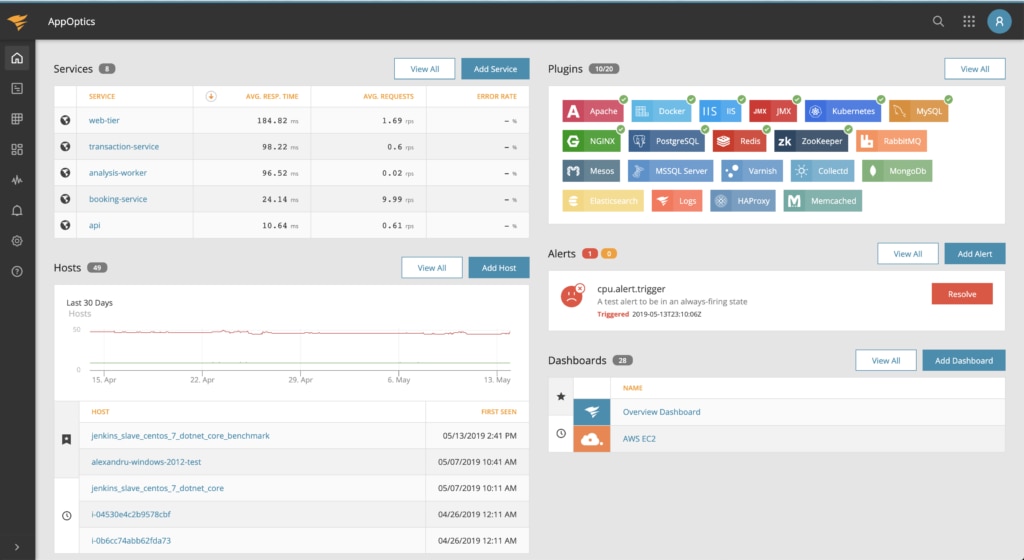
To ensure your applications are healthy and performing as anticipated, it’s important to have 24/7 application monitoring, and you can’t be expected to do this manually. Instead, it’s prudent to invest in a professional-grade application performance management (APM) tool. Look no further than SolarWinds® AppOptics™.
AppOptics is a best-in-class infrastructure and application performance monitoring software with over 150 integrations. AppOptics can help users monitor the performance of Heroku applications, dyno infrastructure (the Linux containers Heroku applications run in), or any metrics important to the dev team.
AppOptics can gather Heroku metrics—like router, runtime, and database monitoring stats—and display them on preconfigured graphs and dashboards. These dashboards are easy to build and can be customized as you see fit. Additionally, if any issues arise with your application, AppOptics can alert your dev team immediately. These alerts can be integrated with your organization’s communication channels, such as PagerDuty, Slack, HipChat, email, SMS, and more.
At $29 a month, AppOptics users get many APM features, such as database monitoring, distributed tracing, dyno health monitoring, and intelligent alerts.
Log Management: Papertrail
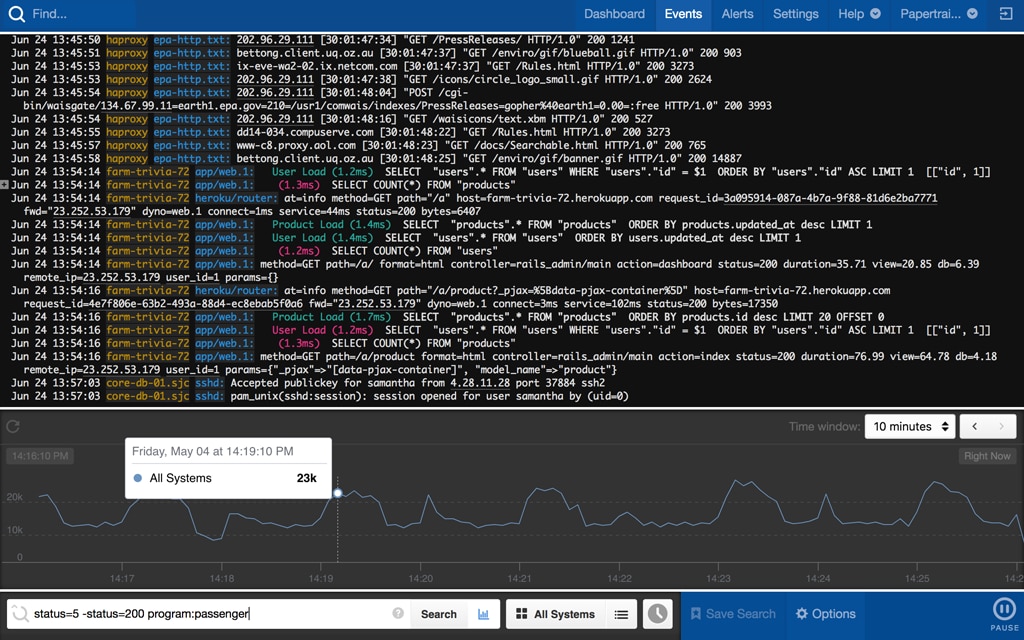
SolarWinds Papertrail™ is a cloud-hosted log management solution with quick troubleshooting capabilities capable of seamless integration with Heroku. Users can collect logs across their network environment on a centralized location and use these insights to track the performance of their applications in real time. This makes it easy to diagnose and repair any issues your applications might encounter.
When integrated with Heroku, Papertrail offers dev teams a thorough visualization of application logs. This includes real-time log tailing, easy searching, and intelligent alerting for all Heroku applications.
Integrating Papertrail with Heroku takes only a few minutes, and once it’s rolled out, dev teams can get right to tailing and searching logs directly from the Papertrail site or via the Heroku command-line utility. Additionally, built-in Heroku-specific searches help users find events with more speed. They can also build and save their own custom searches to keep better tabs on specific log files.
Papertrail users have the option to start with a free plan, and if they scale up their applications in Heroku, they can upgrade to a higher-capacity paid plan as needed.
Website Monitoring: Pingdom
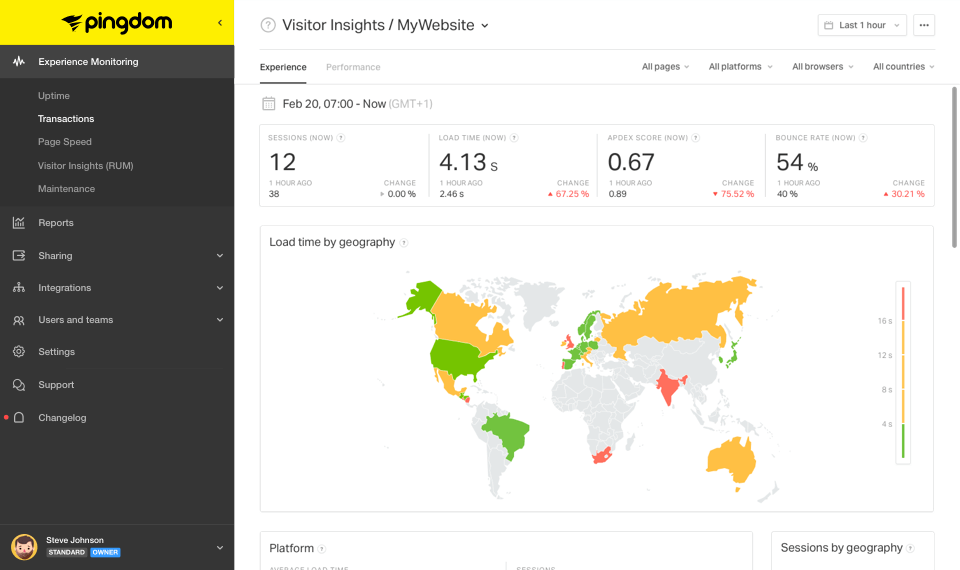
SolarWinds Pingdom® is a full-feature website monitoring solution. It offers users real-time analytics, uptime monitoring, and more. Users can get notified of website outages and obtain useful insights into what incidents might be negatively affecting their web applications.
When integrated with Heroku, Pingdom empowers users to monitor their websites and web applications from over 100 global servers. This monitoring occurs around the clock, so you won’t have a blind spot to the performance and health of your critical web applications. Incidents are double-checked by a second probe before any alerts are sent to your team.
By pairing Pingdom with Heroku, users can check their web apps with real-time uptime monitoring. If a website or web application goes down, Pingdom will generate a detailed report to tell you when it happened, when the website came back online, and its current performance status. In addition, Pingdom offers users transaction monitoring to alert dev when there are issues with logins, searches, or any other type of transaction.
Pingdom users can customize how alerts are sent. When an incident occurs on your Heroku website, Pingdom will send a notification to a dev team member via the communication channel of their choice—SMS, email, Slack, etc.
The Pingdom Starter plan is $14.95/month (or $11.95/month with annual billing) and comes with features like one-minute check intervals, unlimited data retention, real-time reports, and more. The Standard, Advanced, and Professional plans offer additional capabilities.
Web Application Security: Expedited SSL
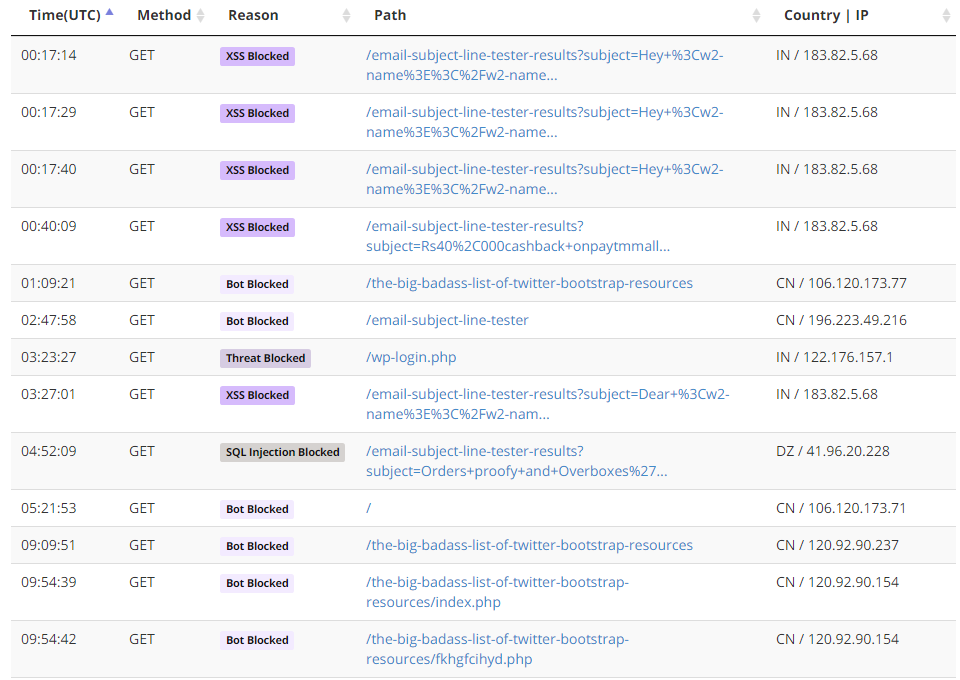
When you’re running certain applications through Heroku, there’s a good chance sensitive data is being sent back and forth between your customers and you. As such, it’s prudent you keep your web applications safe, and this is what Expedited SSL was built for.
Starting at just $14 per month, Expedited SSL is a Security as a Service (SaaS) Heroku add-on. Expedited SSL acts as a web application firewall specifically designed for cloud platforms like Heroku. With the add-on, you can block malicious bots, mitigate the risk of SQL injections, apply per-page protections, and add website caches.
Expedited SSL’s setup usually takes about five minutes—significantly faster than using custom SSL certificates. This is because the Expedited SSL add-on takes all the manual steps associated with SSL certification and combines them into a simple process. This product starts at $75/month for a basic version.
Video Processing: CameraTag
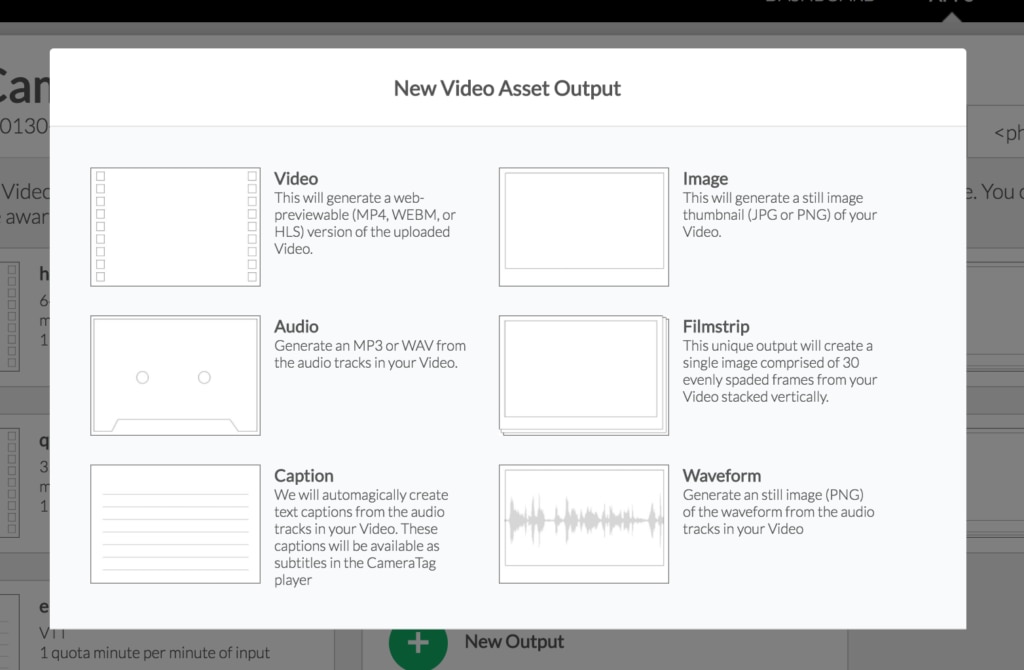
CameraTag is a video recording, transcoding, and playback application with a wide array of uses. At the most basic level, CameraTag enables users to create custom video and audio recordings and process them with just two lines of simple code. This ease of use makes CameraTag an incredibly flexible recording application.
When integrated into Heroku, CameraTag becomes significantly more mobile-friendly; users are free to record and process video and audio from both iOS or Android phones. Heroku also extends CameraTag’s storage functionality by allowing users to export their recorded assets to Amazon S3, YouTube, or even their own FTP server.
CameraTag is free, but users can purchase a professional version if they want to store their recordings or photos. The price will then scale depending on how much storage is used.
Caching Service: Fastly
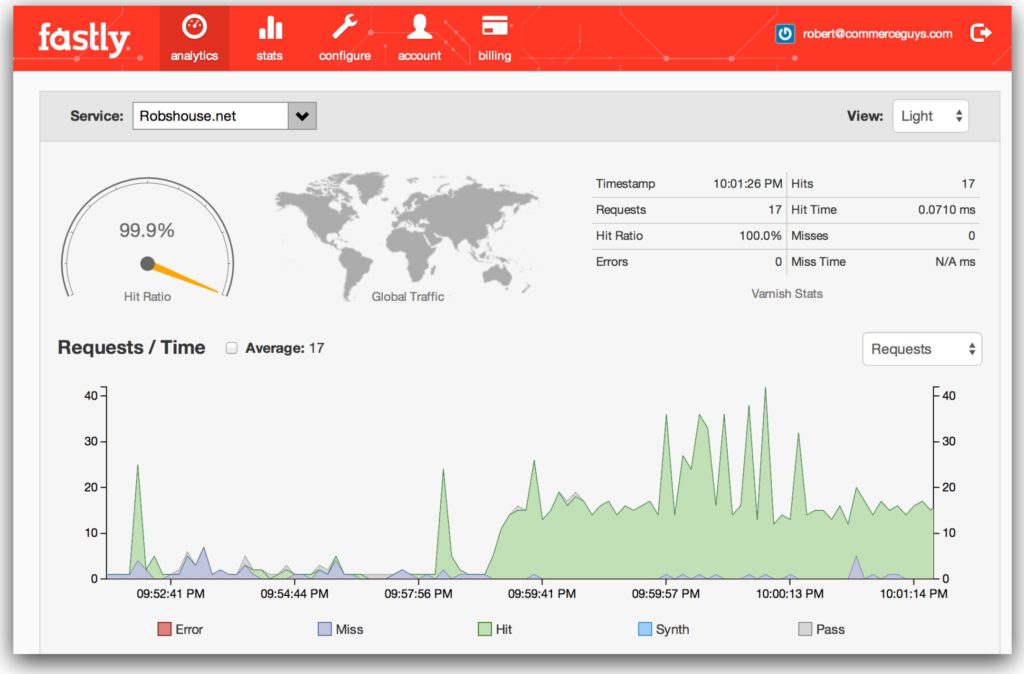
Fastly is a content delivery platform helping businesses scale with the aid of edge cloud computing. With the help of Fastly, individuals can move their data and applications closer to their users so websites and apps perform better, even on a global scale. Fastly can also purge website caches in 150 milliseconds or less, making it quicker than traditional CDNs.
When integrated as a Heroku add-on, users can access the Fastly UI from the Heroku dashboard with a single sign-on. From there, the Heroku API essentially treats Fastly like an infrastructure extension; users can obtain real-time analytics, historical stats, and even configure the setting of their Fastly items.
Fastly starts at only $25/month and, along with excellent cloud computing and caching services, users can receive access to 24/7 customer support.
